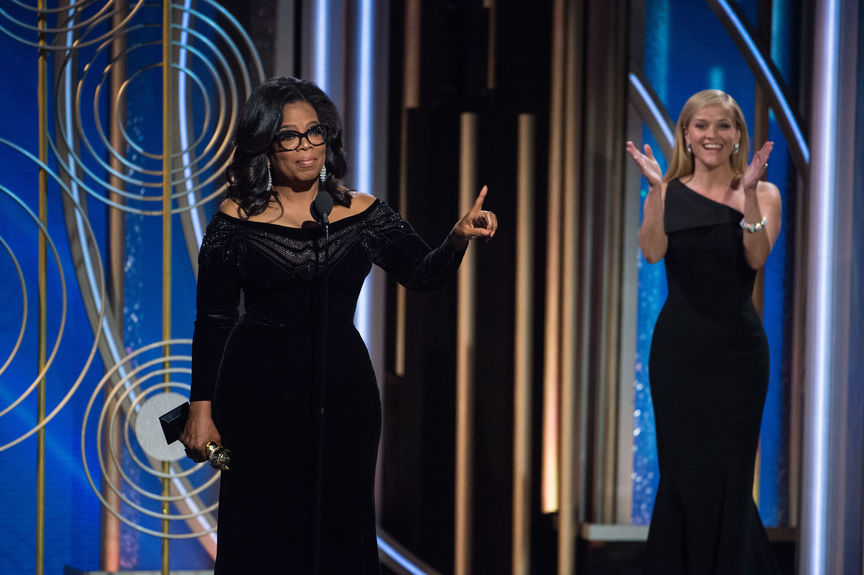OPINION: Oprah keeps MLK’s dream alive with powerful Golden Globes speech
Fifty-five years ago, Martin Luther King Jr. had a dream, sparking a revolution that ultimately changed the world. Last week, Oprah Winfrey reminded us of that dream, encouraging us to make it a reality.
On Sunday, Jan. 7, the Golden Globes awarded Oprah with the Cecil B. DeMille Award for lifetime achievement. Her acceptance speech was a powerful and unifying moment, one whose impact has been nothing short of profound. The video has received nearly 8 million views on YouTube in its first week, while a recording of the speech was uploaded to Spotify’s MLK playlist.
She began her acceptance lamenting on the moment in which she witnessed Sidney Poitier become the first black man to win the Academy Award for Best Actor.
“I remember his tie was white, and of course, his skin was black,” she said. “And I’d never seen a black man being celebrated like that.”
Little did she know that she was just minutes away from being celebrated in the same way.
She acknowledged that she was now the first black woman to receive the same award. It wasn’t a boastful statement, but rather, one of a communal victory—an acknowledgment that, in a society plagued by bigotry and hatred, a black person and a woman could be just as successful as anyone else.
Oprah went on to mention her breakthrough role in “The Color Purple,” a film that directly addresses issues of racism and sexism, two battles that she has been fighting for the entirety of her career. But more importantly, she noted, these are issues that transcend the entertainment industry, primarily affecting ordinary people “whose names we’ll never know.”
She told the story of the late Recy Taylor, a black woman who was raped and threatened to be killed by a group of white men in 1944. After reporting the incident to the N.A.A.C.P., she worked with Rosa Parks to seek justice for her case. Their work together was later considered a crucial breakthrough in the civil rights movement.
Oprah praised Taylor for speaking her truth. She said it was this truth that ultimately inspired Parks’ Montgomery bus boycott 11 years later, and this same truth now inspires all of the women—and men—choosing to speak up in the “Me Too” movement.
“I want all the girls watching here and now to know that a new day is on the horizon,” Oprah triumphantly proclaimed. “And when that new day finally dawns, it will be because of a lot of magnificent women, many of whom are right here in this room tonight, and some pretty phenomenal men, fighting hard to make sure that they become the leaders who take us to the time when nobody ever has to say, ‘Me too’ again.”
In that moment, it didn’t matter if you were white or black, male or female, straight or gay, liberal or conservative—everyone in the room, everyone watching at home was silent, and they listened.
In many ways, Winfrey’s words echoed those of Martin Luther King Jr., giving a voice to the voiceless and promising justice for the downtrodden. Without even mentioning him, she was able to bring the spirit of King’s work to her speech that night.
However, she also rose above the limitations of the countless social injustices being fought against today, instead examining them on a singular, much broader scale—the fight for equality. In her nearly nine-minute-long speech, Oprah quickly turned the conversation from herself to each and every one of us who have ever felt oppressed in some way. It wasn’t just a victory for Oprah, but a victory for everyone else, too.
Since King’s fight for civil rights back in the 1960s, the times have changed. Progress has been made, but still, the battle rages on.
On this Martin Luther King Jr. Day, we are reminded by people like Oprah that hope is not lost, as long as we are willing to listen.
If everyone stopped and listened the way they did when Oprah spoke at the Golden Globes, perhaps the war against the repressive and brutal powerholders of our society could be won, because, as Oprah so gracefully reminded us, “their time is up.”








